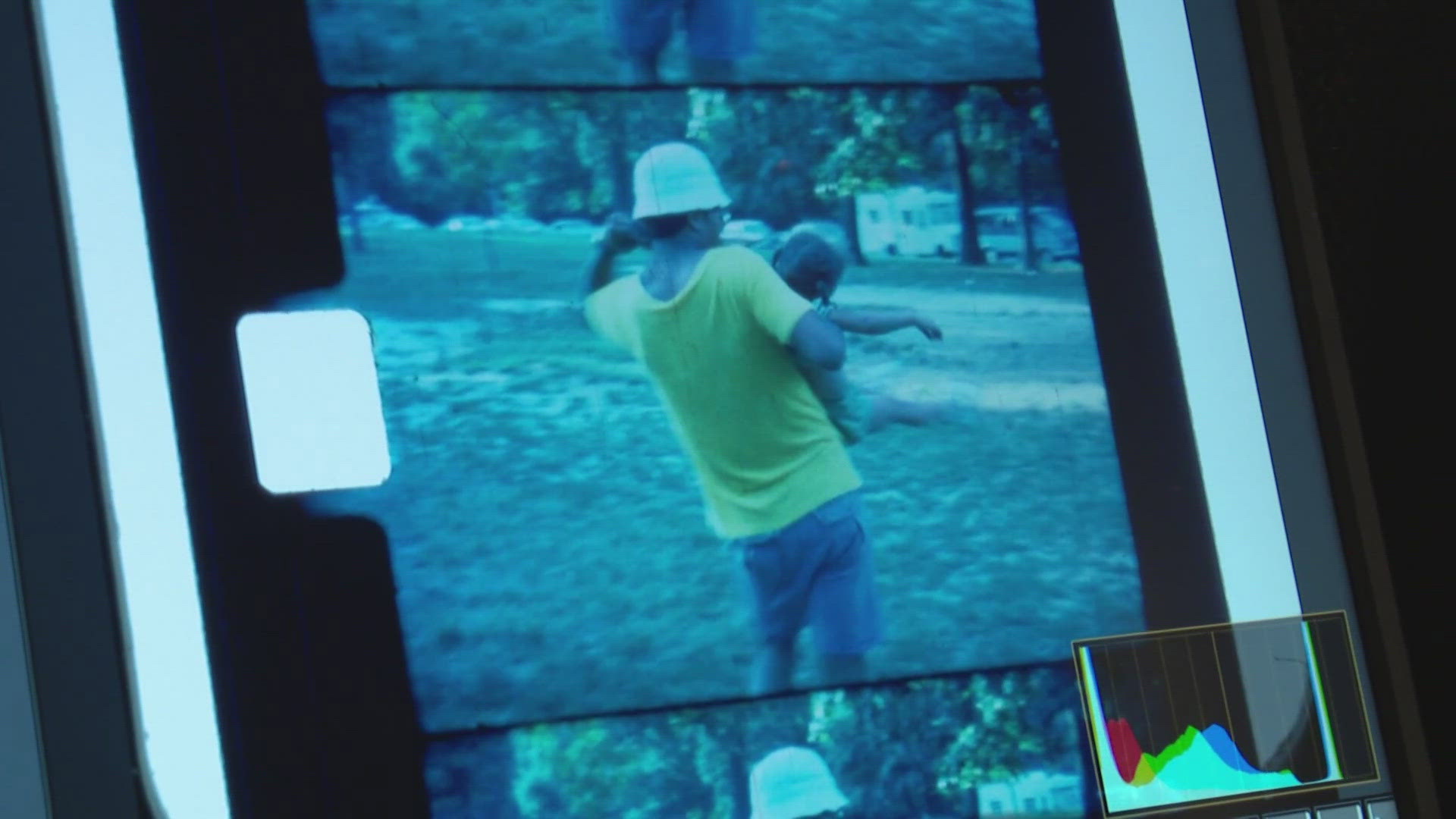ST. LOUIS — A team from the Smithsonian's National Museum of African American History and Culture (NMAAHC) has traveled from Washington, D.C. to the St. Louis area to help Black people find and preserve their family history as part of the Community Curation Project.
Recovering lost heritage
Because of slavery, it's tough for Black families to trace ancestry back to before the 1870 Census. That's when Black people were counted by name for the first time. NMAAHC specialists are in town to make sure no more history is left unrecorded.
"We concentrate really on preserving local history," said Doretha Williams, director of the NMAAHC Center of Digitization and Curation of African American History. "So, we're looking at No. 1 digitization, making sure families, communities, institutions can have their materials and histories and memories digitally preserved. We also bring along our genealogists who run the Family History Center on the second floor of the museum. That's where they're stationed. But when they're on the road, they come and they bring their programs."
The genealogy team did a presentation explaining how to use the Freedmen's Bureau Search Portal. Created by Congress in 1865 to help with political and social reconstruction in the South following the Civil War and to help formerly enslaved African Americans transition to freedom and citizenship. The portal allows family historians and genealogists to comb through 1.7 million pages of Freedmen's Bureau documents in one place.
To use the portal, enter a family member's name, location and date to see which documents pop up.
St. Louisans may uncover many ties to their past.
"Exedusters — those African Americans who traveled from the south in the late 19th century, 1880 or 1879, made their way to St. Louis — some made their way to Kansas," Williams said.
Preserving family memories
One part of the Community Curation Project is uncovering family history, but another is preserving the history you might already have in your home.
Whether they're on VHS, Betamax or Super 8, priceless memories have a shelf life.
"If your film is degrading, it'll actually start to smell like vinegar," said C.K. Ming, media conservation and digitization specialist with NMAAHC. "So if you have any films out there that smell like your vinegar at home, you need to get them digitized. Because the acetate is leeching off the film as it deteriorates."
If signs of degradation are present, you'll want to act fast.
Through Sept. 29, the Smithsonian's digitalization truck will be set up at Cardinal Ritter College Prep High School, 701 North Spring Ave., to convert treasured home movies, videos and audio tapes into digital files. Each family can digitize five items, but you can bring more to your appointment, and staff members can help recommend which items to prioritize. Unfortunately, appointments are all booked up, but you can still learn how to digitize your own records at a workshop 6 p.m. Thursday at the Julia Davis Public Library, located at 4415 Natural Bridge Ave.
For more 2024 Community Curation Program events, click here.
Year-round, the St. Louis County Library - Clark Family Branch's Memory Lab, located in the Emerson History and Genealogy Center on the second floor of the library at 1640 South Lindbergh Blvd., offers a do-it-yourself space for digitization of photos, documents, slides and negatives. Staff is on-site to examine the items and provide guidance during the process. There's also a personal history station that allows you to record audio of stories and family histories.
Click here to schedule an appointment at the Memory Lab.

